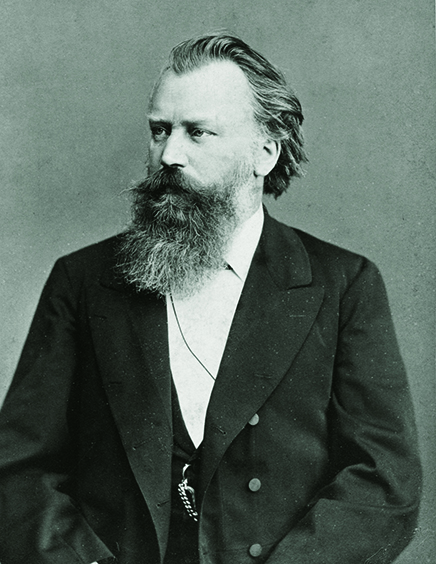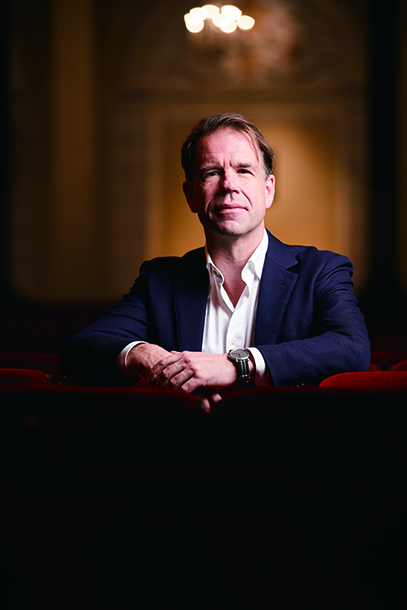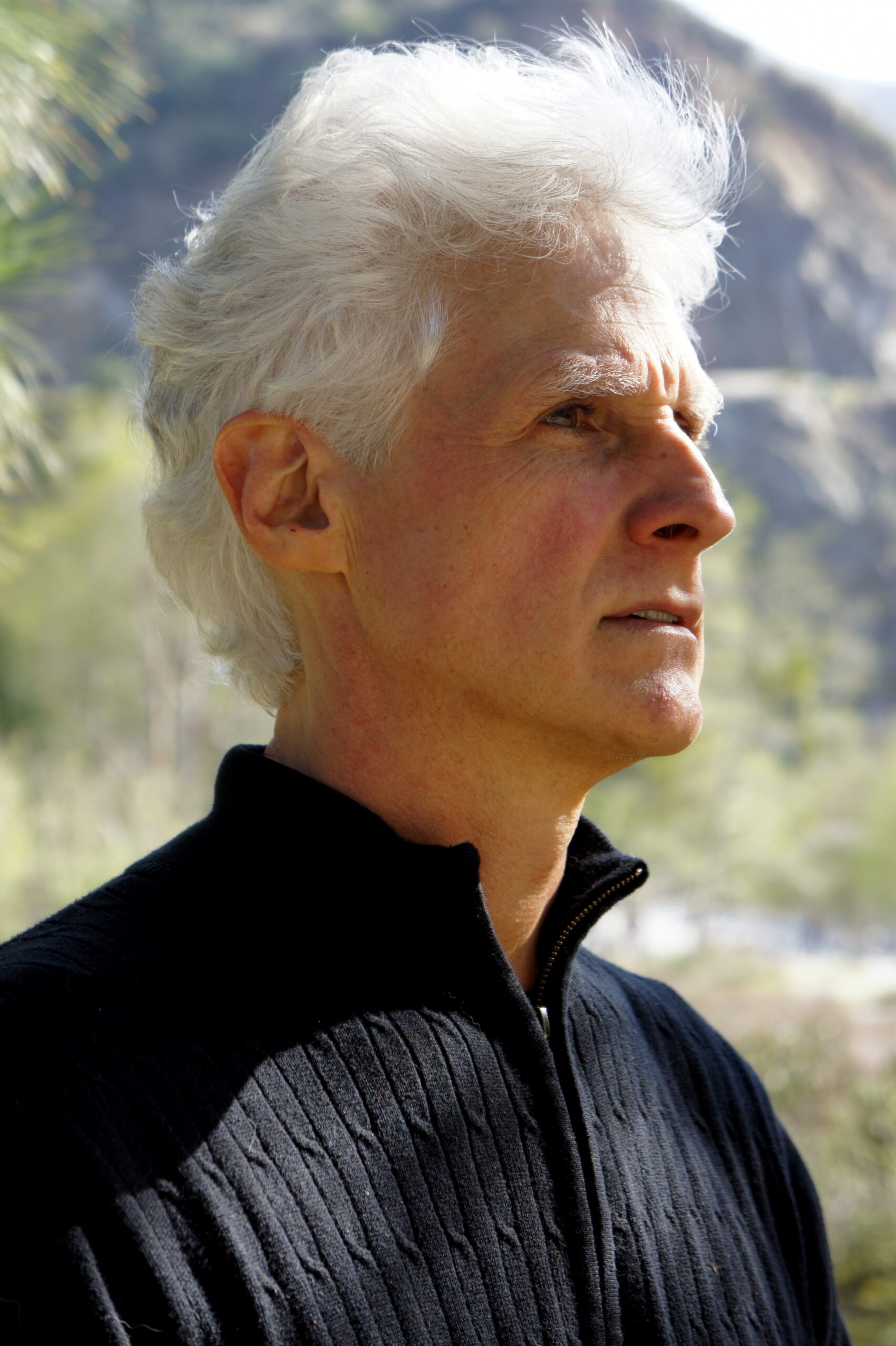레너드 번스타인의 편지들
혹시 책장이 차고 넘쳐 고민이라면, 레너드 번스타인 관련 저서부터 정리해 종이 쓰레기함에 넣어라. 곧 예일대 출판부(Yale University Press)가 출판하는 ‘레너드 번스타인의 편지들(The Letters of Leonard Bernstein)’에는 놀라운 비밀들이 가득하기 때문이다. 이는 번스타인의 저서를 비롯한, 그에 관한 이전의 책들 모두를 한순간에 무색하게 만들어버릴 만하다. 단지 필자의 개인적인 생각이 아니다. 책의 표지에서 번스타인의 공식 전기 작가인 험프리 버턴은 이 책을 손에 들고 이렇게 말하고 있다. “처음부터 완전히 다시 시작하고 싶다.”
번스타인의 어릴 적 스승이자 평생 비서였던 헬렌 코츠가 보관했던 수만 통의 편지는 현재 미국의회도서관에 보관돼 있다. 그 수를 세기도 힘든 편지들 가운데 중요한 것들을 추려내는 작업은 엄청난 수준의 지식과 대담함을 지닌 학자가 아니면 감히 시도할 수도 없는 일이다. 이를 해낸 이가 있었으니, 바로 메시앙과 ‘웨스트 사이드 스토리’에 관한 전문가로 정평이 난 영국인 나이절 시메온이다. 그의 큐레이션은 자신감 넘치고 포괄적이며, 단순 비평 그 이상이다.
시메온은 1932년 번스타인이 코츠에게 보낸 편지로 이 책을 시작한다. “당신에게 피아노를 배우기로 했습니다. 레슨은 2주에 한 번으로 하죠.” 14세 소년의 당당함 치고는 거의 뻔뻔함에 가깝지 않은가. 번스타인의 이러한 자신감은 평생 흔들린 적이 없었다.
번스타인의 편지를 읽다 보면 마치 내 기억 속 그의 목소리가 들리는 듯하다. 위트, 적의, 진실, 번뜩이는 통찰력, 만물에 대한 호기심과 실패에 대한 깊은 이해를 거침없이 펼쳐내는 그의 음성을 거부할 수는 없다. 번스타인의 관심 대상은 무한하며, 중요한 이슈들에 관한 입장은 참으로 당당하게 양면적이다.
번스타인은 만년에 이르러 이렇게 말한다. “존경받을 만한 사람은 모순에 갇히지 않습니다. 우리는 성경이 가르치는 바를 말 그대로는 아니더라도 일정 부분 믿으면서, 다윈과 프로이트의 학설 역시 믿고 있죠. 윌리엄 블레이크 대 마틴 가드너, X 대 Y를 비롯한 수많은 대조 사항들은 자유탐구와 민주주의를 불러일으킵니다. 나는 나 자신과 당신을 애초부터 합리적인 인본주의자라 생각하고 싶지만, 내가 호흡하고 있는 건 절대자의 에너지로군요….”
하여튼 평범한 사람은 아니다. 이 편지의 대상이 그의 비즈니스 매니저였다는 사실을 알게 되면, 번스타인이 볼테르의 낙천주의적 사상으로 ‘캔디드’의 모든 역할을 해내며 자신만큼이나 싱숭생숭한 사람들의 마음을 사로잡고도 그 진실성은 온전히 지켜낼 수 있었다는 사실에 감사하게 될 것이다.
번스타인의 주된 관심사는 음악, 커리어, 정치, 그리고 꾸준한 집착을 보였던 섹스였다. 그는 친구를 쉽게 사귀며, 한번 사귄 친구는 평생을 갔다. 그의 인맥은 모든 분야의 유명인사들을 아울렀다. 베티 데이비스는 그를 좋아했고, 프랭크 시나트라는 팬이었으며, 루이 암스트롱은 그를 “대디”라 불렀다. 마일스 데이비스는 그를 천재라 칭했고, 아서 밀러는 자신의 집에서 묵고 가라며 초청했다. 재클린 케네디는 새벽 네 시에 ‘당신의 말러’란 제목으로 여섯 쪽에 달하는 편지를 썼다. 번스타인은 미국에서 다시 없을 명성을 얻은 유일한 클래식 작곡가였다.
번스타인은 미국 토박이임에도 불구하고 지속적으로 자신이 아웃사이더라고 느꼈다. 프리츠 라이너·드미트리 미트로폴로스·세르게이 쿠세비츠키 등 그의 지휘 멘토들은 그를 구대륙인(유럽인)이라 일컬었다. 그는 당시 뜨거웠던 전쟁에도 참가하지 않았다. 에런 코플런드 및 대부분의 절친들과 마찬가지로, 그는 정치적으로 좌파 성향을 지닌 유대인이었다. 물론 스스로 공산주의자라고 인정한 적은 없지만, 1940년대에 쓰인 편지들에는 ‘당’에 관한 언급이 발견된다. 1953년 상원의원 매카시의 폭탄선언으로 예술계에 테러가 일어나면서 번스타인도 여권을 박탈당하자, 그는 요란스러운 진술서를 통해 이렇게 선언한다. “나는 단 한 번도 공산당원이었던 적이 없으며, 공산주의 신념이나 이데올로기를 지지한 적도 없다. (오히려) 나는 예전에 소비에트 체제가 특히 작곡가들과 같은 창의적인 예술가들을 억제한 점에 대해 언급한 적이 있다.” 자신을 억제하는 미국의 모순적 정치가들을 향한 비꼼이 보이지 않는가?
번스타인을 더욱 아웃사이더로 만드는 것이 있었으니, 바로 양성애적 성향이었다. 그는 여성보다 남성에게 더 매력을 느꼈으며, 주기적인 짧은 금욕 기간을 제외하고는 끊임없이 남녀 모두에게 희망고문을 가했다. 그는 뉴욕의 한 정신과 여의사를 알고 지냈다. 그녀는 그의 연인, 클라리넷 연주자 데이비드 오펜하임도 알고 있었다. 여의사는 그에게 “당신의 꿈에는 혼란이 있어요. 당신은 가야 할 길로 가지 못하고 있죠. 두 명에게 동시에 마음을 주고 있으니까요. 펠리시아를 사랑하면서도 그녀가 없으면 다른 남자를 꼭 만나야 하잖아요”라고 말했다.
번스타인의 칠레 출신 약혼녀 펠리시아 몬테알레그레는 그와 결혼하기로 동의하면서 “당신은 동성애자이고, 절대 변하지 않을지도 몰라요. 하지만 동시에 ‘이중생활’의 가능성을 절대 인정하지 않죠”라며 그의 양성애적 성향을 받아들였다. 정신과 의사와 약혼녀 모두 번스타인에게 확실한 증거를 들이댔으나, 그는 자신을 이성애자든 동성애자든 한쪽으로 제한시키려는 모든 노력을 교묘히 피했다.
음악은 그에게 있어 대중적 인기와 클래식적 자신감 사이에서 분열된 최대의 양면가치였다. 1944년 쿠세비츠키가 번스타인의 작품 ‘온 더 타운(On The Town)’을 맹비난한 뒤로, 번스타인은 쿠세비츠키가 죽을 때까지 브로드웨이 작품은 쓰지 않았다. 1956년 ‘웨스트 사이드 스토리(West Side Story)’를 완성한 직후 뉴욕 필하모닉 오케스트라의 음악감독직을 맡는 등 양다리를 걸치면서도 그는 절대로 자신의 ‘이중생활’를 공식적으로 인정하지는 않았다.
모든 남녀에게 전부가 되고픈 그의 소망에도 ‘불구하고’ ‘그 때문에’인지 모르겠으나, 여하튼 번스타인의 그러한 소망은 미국의 위대한 성공 스토리가 되었다. 그의 필하모닉 시대를 통해 미국 작곡가들이 세계적으로 인정받게 되었다. 또한 말러 열풍을 일으키고, 논쟁과 관심을 유발하며 TV라는 새로운 매체를 통해 대중에게 음악에 대해 가르쳤다. 그의 강의는 토요일 아침 여덟 살짜리 아이마저도 재미있게 시청했다.
15년 뒤, 번스타인은 또 다른 확신과 위안을 찾아 헤매게 된다. 뉴욕 필하모닉 오케스트라 이후 다른 일을 하지 않았으며, 펠리시아를 떠나 다른 남성에게로 갔다가 펠리시아가 생을 마감할 즈음 돌아와 그녀를 간호했다. 그의 콘서트는 줄줄이 흥행에 참패했다. 그는 작곡가 네드 로럼에게 쓴 편지에서 이렇게 말했다. “네드, 당신과 나의 문제는 세상 모든 사람들이 개인적 차원에서 우리를 사랑해주길 바란다는 거예요… 그건 불가능하죠.”
번스타인은 쇠퇴기에도 세상 어느 곳이든 빛낼 수 있었다. 나는 사보이(주점 이름)의 출입구에서 망가질 대로 망가져 위스키에 절은 채 코를 후비적대던 그의 눈길 한 번에 전율을 느끼던 일을 기억한다. 1990년 10월 그의 죽음으로 맨해튼은 한동안 침묵에 빠졌다.
사망 몇 주 전, 번스타인은 고령의 어머니 제니로부터 한 통의 편지를 받았다. “사랑하는 아들아, 네가 바른 길을 가고 있다고 나는 확신한다.” 유대인 어머니의 절제된 농담임을 감안하라. 눈을 뗄 수 없는 이 편지들에는 영원하며 때로는 참을 수 없는 진실들이 숨어 있다.
번역 윤수린
Leonard Bernstein’s Letters
The next time you suffer overspill on your bookshelves, take down the Bernstein section and send it for recycling. The Letters of Leonard Bernstein, out this month from Yale University Press, contain so much that is startling and unknown that all past books, including his own, become instantly inadequate. Don’t take my word for it. On the jacket, Bernstein’s official biographer, Humphrey Burton, declares that, with this book in hand, ‘I want to start all over again.’
The letters, preserved by Bernstein’s early piano teacher and lifelong secretary, Helen Coates, are housed at the Library of Congress, tens of thousands of them, so many that only an amazingly knowledgeable or presumptuous scholar would dare to sift wheat from chaff. The man who dared is Nigel Simeone, an English expert on Messiaen and West Side Story; his curation is confident, comprehensive, beyond criticism.
Simeone opens with a 1932 letter signed ‘Leonard Bernstein’ to Miss Coates: ‘I have decided to study with you, taking one lesson every two weeks.’ He is 14 years old and his authority verges on effrontery. That assurance never wavers through his life.
Bernstein writes letters as I remember him speaking: in a stream of consciousness that burbles with wit, malice, truth, flashes of human insight, an omnivorous curiosity and a profound understanding for failure. His voice is irresistible, his interests boundless and his position on any important issue magnificently ambivalent.
‘Which of us worth his salt is not a paradoxnick,’ he demands, late in life. ‘There’s something in the Bible we all believe, even if not literally; and there’s something also in Darwin and Freud that grabs us equally. Wm. Blake vs. Martin Gardner, X vs Y and on down the list of all the antitheses that engender free inquiry and democracy. I like to think of myself, and you, as primarily rational humanists, but then there I go inhaling cosmic energies…’
Such a man belongs to no conventional set. When I share with you the discovery that this letter was written to his business manager, you will appreciate that Bernstein gathered minds as restless as his own in a community where, with Voltairean pangloss, he could play all the roles in Candide and escape with integrity intact.
His driving concerns are music, career, politics and sex, the last a constant preoccupation. He makes friends easily and clings to them for life. His circle embraces every strand of celebrity. Bette Davis adores him. Frank Sinatra is a fan, Louis Armstrong calls him ‘Daddy’, Miles Davis declares him a genius, Arthur Miller invites him to sleep over and Jacqueline Kennedy writes him a six-page letter about ‘your Mahler’ at four in the morning. Bernstein is the only classical composer to achieve that degree of American fame, a feat never to be repeated.
American born and bred, he feels a constant outcast. His conducting mentors ? Fritz Reiner, Dmitri Mitripoulos, Serge Koussevitzky ? connect him to the Old Continent. He misses out on war service, the forging fire of his generation. Like Aaron Copland and most of his closest friends, he is Jewish and politically on the Left. There is mention of the ‘party’ in letters of the 1940s, though Bernstein would always deny he was a Communist. In an effusive affidavit, sworn in 1953 when Senator McCarthy inflicted terror across the arts and Bernstein had his passport withdrawn, he declares: ‘I am not and never have been a member of the Communist Party, nor have I ever subscribed to communist doctrine or ideology’. He adds: ‘I have in the past spoken out against the inhibitions imposed upon creative artists, particularly composers, under the Soviet regime’. Do we hear an ironic snipe at his own, American inhibitors?
His outsiderness is exacerbated by sexual duality. He is attracted more to men than to women, giving restless encouragement to both – except during brief chastity breaks. He sees a New York shrink, ‘the Frau’, whom he shares with his lover, the clarinettist, David Oppenheim. The Frau tells him: ‘In your dreams there is confusion, you are not able to go where you have to go: two simultaneous engagements and so on. You are seeing Felicia and the day she leaves you have to see a boy.’
Felicia Montealgre, his Chilean fiancee, agreeing to marry him, accepts that ‘you are a homosexual and may never change ? you don’t admit to the possibility of a double life.’ Both the shrink and the wife have got him bang to rights. Bernstein, however, eludes all attempts to limit him to any single affinity.
Music is his ultimate ambivalence, riven between mass popularity and classical esteem. Koussevitzky condemns On The Town in 1944, so he writes nothing more for Broadway while the old man is alive. He completes West Side Story in 1956 and, the ink still wet, signs on as music director of the New York Philharmonic Orchestra one foot in both camps, never openly acknowledging the possibility of a double life.
Despite, or because of, his desire to be all things to all men and women, his is one of the great American success stories. His Philharmonic era brings US composers universal recognition. He creates a cult of Gustav Mahler, provokes argument and attention and educates a mass audience via the new television medium in how music really works. To eight year-old kids on Saturday morning, he makes it seem like fun.
After 15 years, he drifts off, craving other confirmations and consolations. He takes no other job after the Philharmonic. He leaves Felicia for a man and returns to nurse her when she is dying. His later concert works miss the mark by an ever-widening mile. He tells the song composer, Ned Rorem: ‘The trouble with you and me, Ned, is that we want everyone in the world to personally love us and … that’s impossible.’
Even in decline, he could light up any room on earth. I remember an affair at the Savoy electrified by the glimpse of that ruined, whisky-capillaried nose poking round a doorway. His death, in October 1990, hushed Manhattan to a moment’s silence.
Weeks before the end, he receives a letter from his aged mother, Jennie. ‘Dear Son,’ she writes, ‘I have confidence in you that you are on the right track.’ Curb the Jewish mother jokes: within these compelling letters lie eternal, at times unbearable truths. NL







